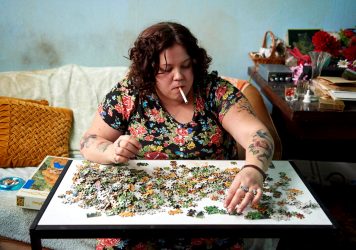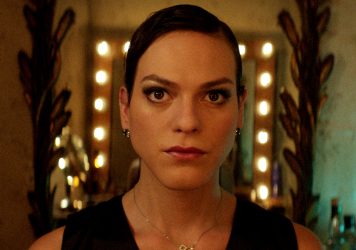Kids hang loose as their parents attempt to build them a new civilisation in this easygoing political fable.
The people of Chile in 1989 experienced a liberation, as military dictator General August Pinochet was voted out in a Yes/No referendum and democracy flowed back into the country like a warm current. Too Late to Die Young, the third feature by the majorly talented Chilean writer/director Dominga Sotomayor Castillo, charts a moment of boundless political possibility, a chance for people to reassume autonomy of their own lives and reject the violent diktats of the junta. It joins a family as they enter into an ad hoc rural commune close to the stage of its inception. The houses are rickety wooden frames and sheets of flapping plastic are the only protection from the elements.
Questions of whether a traditional fuel generator is necessary, and where to locate a water source independent from the local supply, dominate conversation – although, in the spirit of these new, peaceable times, voices are seldom raised. Yet the rebirth of grassroots democracy is not Sotomayor’s sole concern – her film explores the idea of democracy beyond the present tense. That is, how it effects the children and teens. She is not interested in why we built these structures, but who we build them for, and do those (adolescent) people truly comprehend the import of the work being done?
The nucleus of the film’s large ensemble cast is the dejected, quietly spoken Sofía (Demian Hernández), who is the most sceptical of an alternative living arrangement that she had no opportunity to opt out of, almost as if democracy is being forced upon her. The film doesn’t really run with a traditional narrative, it’s timeline consists of Sofía’s daily life, her romantic clinches, her periods of silent reflection, cigarettes in the bath listening to shoegaze, and her attempts to move back to the city to live with her mother. It’s an unshowy, yet sensual performance, depicting a young woman’s attempt to secure personal happiness amid the happy maelstrom of this infant civilisation out in the forest.
Sotomayor is measured when it comes to tallying the pros and cons of this radical social experiment. On one hand, she suggests that children blossom in this natural setting. They are untethered and free to express themselves as they wish. They swim and frolic and commune with the surroundings. One small kid even breaks out his Michael Jackson dance moves at an outdoor party. And yet, the adults feel intellectually closeted, locked into antiquated methods and unable to disconnect from the nostalgia of life before the dictatorship. A village elder is seen tramping across a comically arid plain with a dowsing stick and just saying “no water here, no water here.” Sofía looks on, facepalming, and considering her escape route.
If there’s any criticism, it’s that the film is perhaps a little too light on drama, as relationships and confrontations are often naggingly fleeting. The story is based on Sotomayor’s own memories of her youth, and its climax sounds a note of reflective bitterness. It says that if we can’t trust the architects to spoil their own structure, then we can sure as hell count on nature to bring it all down for them. Visually, the film is a dream: final special mentions should go to cinematographer Inti Briones and production designer Estefania Larrain, who just construct each frame with shabby-chic perfection, artfully balancing colours, tones and shapes in a way than never looks forced, and never forgetting to add a little comic twist every so often.
Published 24 May 2019
Loved Sotomayor's Thursday Till Sunday. Excited for this one.
Cleverly expands on themes of parent-child dislocation.
An intimate, human-focused film with broad allegorical potential.

By Ashley Clark
Gael García Bernal takes down a dictator with glossy TV advertising in this brilliant Chilean satire.

Richard Billingham offers a bracingly honest portrait of life in a Birmingham council flat.

A star is born in Sebastián Lelio’s drama about a trans woman coming to terms with the death of her partner.